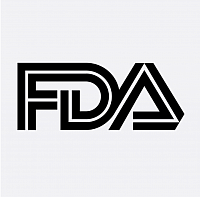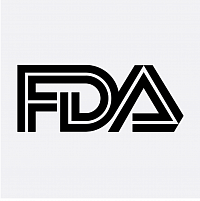Still no Emory clinical trial announcement
[Sep 2023] The Emory FDA Montelukast Alzheimers clinical trial was completed in November 2022. In December l contacted one of the physicians who was envolved in the trial about when he thought there would be an announcement of the results. He said Emory was still analyzing the data and he was hoping for good results soon. Now it is September 2023, ten months after the completion of the trial and there is still no announcement of results.
I understand that results are often not announced in pharmaceutical company sponsored trials if the results are not favorable. However the montelukast trial was not sponsored by a drug company but by Emory University itself. Emory has done hundreds of FDA trials and I would not expect them to hold back on this one. Further it is hard to believe that a clinical trial having only 32 participants would require more than ten months to analyze the data in order to make an announcement of results.
My concern is that officials in the FDA may be involved in blocking the announcement of results. A positive result from Emory for this inexpensive generic anti-inflammatory drug would create huge problems for the drug giants Biogen, Eisai, and Eli Lilly, who are seeking to get their expensive and marginally effective monoclonal antibodies treatments for Alzheimers approved by Medicare.
The FDA has a recent history of FDA officials making secret contacts and having secret meetings with drug company officials seeking favorable treatment, as per the 2022 congressional investigation into Biogen's Alzheimers drug Aduhelm's approval. I believe that the FDA is collaborating with Biogen and other drug companies to block the montelukast clinical trial announcement while these companies are working on their Medicare approvals. These companies could lose billions of dollars if montelukast was found to be more effective for preventing and treating Alzheimers than their products.
The FDA has a rule that FDA clinical trial results are required to be announced within a year of its completion. The FDA has been lax in enforcing this rule on pharmaceutical companies. The year is up this November for the Emory trial and we will see if the FDA will prevent Emory from abiding by this requirement.
Many physicians, including my daughter, are waiting for the results. After the Covid pandemic, the Emory trial was reduced from 150 to 32 participants, so it is too small to count for approval as an Alzheimers treatment. However montelukast is FDA approved for asthma and some doctors will be willing to prescribe it off label in higher dosages for Alzheimers if the trial results are positive. They are waiting.
The FDA and Lecanemab
[Oct 2023]. I found an article in Axios that revealed that the results on the lecanemab (Leqembi) trial published in the New England Journal of Medicine showed a 27 percent reduction in decline in early Alzheimers. However information published separately in a supplementary appendix that few people read showed that the reduction for men was 43 percent and the reduction for women was 12 percent. This information should have been in the main published report rather than hidden away.
Why does the FDA allow Eisai/Biogen to deceive women who make up almost two thirds of Alzheimers patients in the US. Because there are officials in the FDA who are collaborating with Eisai/Biogen. These are the people who want to stop or delay an announcement of any positive results coming from the Emory trial that could interfere with Eisai/Biogen profits. This November marks one year after the Emory trial completion date. According to the FDA's own rules, the results of a FDA clinical trial are required to be posted within one year of its completion. Let's see what will happen.
https://www.axios.com/2023/07/11/leqembi-azheimers-drug-women-men-efficacy
Studies on Pulmonary Fibrosis
[Nov 2023]. I have discovered research that was done using montelukast to successfully treat pulmonary fibrosis in animal models. The first study was conducted at Shimane University of Medicine in Japan, using mice as animal models and was published in 2011. The second study was conducted at Bolu State Hospital, Bolu, Turkey, using Wistar albino rats and was published in 2018.
Study from Japan https://www.sciencedirect.com/science/article/abs/pii/S0014299910010666
Naturally when you get good results in animal models, you would want to do a clinical trial. Unfortunately this is often not happening for generics because the big pharmaceutical makers do not invest in drugs that are not going to produce big profits. Governments and institutions also rarely step in to sponsor a trial. Emory University is a rare exception in sponsoring the montelukast Alzheimers trial which was completed November of last year but still no results have been announced. I suspect that Emory is being pressured not to release the results by certain FDA officials collaborating with major drug makers.
Once Emory's results are released, I think that montelukast will be shown to be effective in treating Alzheimers and also be effective in reducing chronic inflammation, meaning that it can be used to treat many diseases that increase with aging. I predict that in the future, it will become standard medical practice for people in their 40s and 50s to start taking montelukast and other leukotriene inhibitors to reduce chronic inflammation and prevent and delay many diseases that come as we get older.



